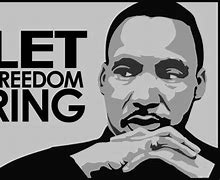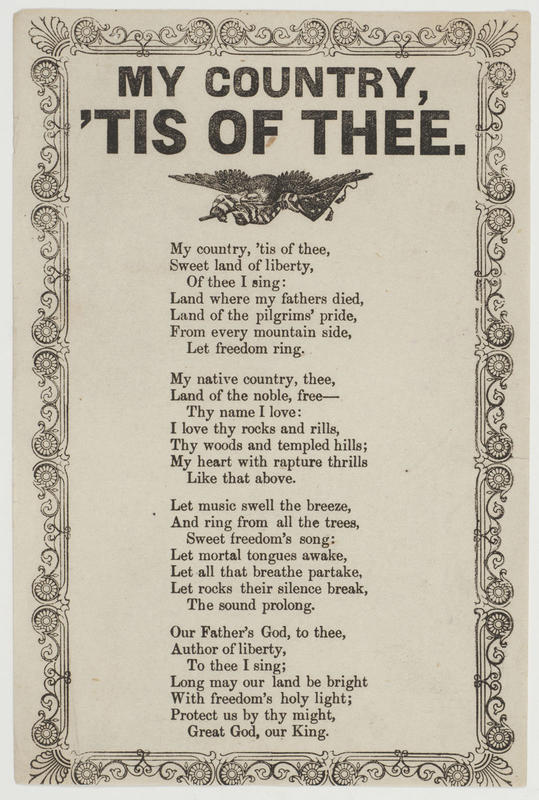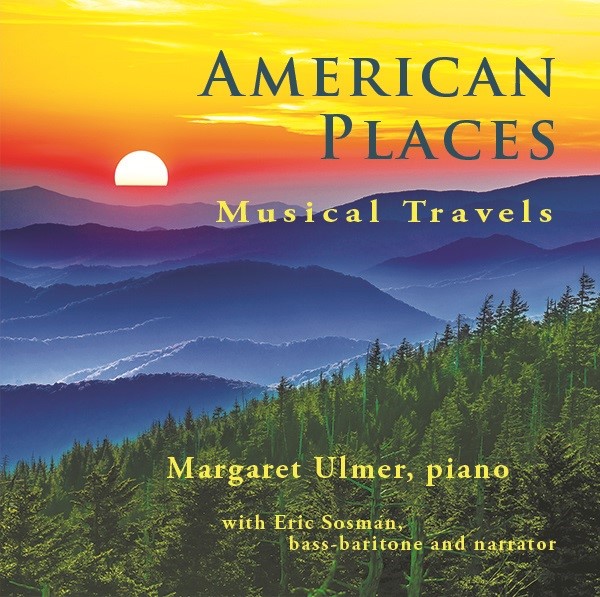
"Let Freedom Ring!"
A remembrance of Dr. Martin Luther King's 1963 speech
One of the great American patriotic songs is in danger of being lost in the dust of the past.
It used to be sung regularly in public schools, in churches, and at civic events.
Unfortunately, today it is not heard as often.Yet sixty years ago on August 28, 1963, it was used as a symbol for freedom as quoted by Dr. Martin Luther King Jr. in his famous "I Have A Dream" speech at the Lincoln Memorial in Washington, D.C.
In 1963 I was in the U.S. Army stationed in Germany and when I read about this speech in the Stars & Stripes newspaper, I could tell it was an important event and had made an impact on many. Some of my white Army buddies were not so kind to Dr. King and other black leaders at The March on Washington. Bigotry was very close to the surface in those early days of the Civil Rights Movement. But I didn't share their prejudices and knew that Dr. King's eloquent speech was significant.
Here is the excerpt when Dr. King quotes the first verse of the patriotic song after beginning with his memorable words: "I have a dream today" --
This will be the day when all of God's children will be able to sing with new meaning --
"My country 'tis of thee; sweet land of liberty; of thee I sing;
land where my fathers died; land of the pilgrim's pride,
from every mountain side, let freedom ring"
and if America is to be a great nation, this must be true.
"My Country! 'tis of Thee" was actually based on an old British tune, "God Save The King," which is the national anthem of Great Britain and its Commonwealth countries. The tune has had a long history of its use in the U.S.A.
Was Dr. King aware that "God Save The King" had been sung when George Washington was inaugurated in New York City as the first President in 1789? Probably not. It was then titled, "Ode to the President of the United States" with words by Samuel Low. It seems strange that it was a British tune used to celebrate the General who led his troops valiantly during the American Revolution and was now unanimously named first U.S. President. But that was probably because the British tune was well known in America at that time.Perhaps Dr. King was thinking of the connection to Boston, Massachusetts where the Abolitionists worked to end slavery in the South before and during the Civil War. It was also the city where the song had been sung for the first time over a century before at Park Street Church.
Whatever his thoughts on the song, his quoting of it was a call for freedom and for more jobs, not just for blacks but also for white workers.
Over a century earlier the song quoted by Dr. King had a different reason for its use.
This is the account of the song's origin from the book, Music for Patriots, Politicians and Presidents,
by Vera Brodsky Lawrence (Macmillan Publishing Co., 1975):
"My Country, 'Tis of Thee," the ultimate American version of "God Save the King," was written in 1831 by Samuel Francis Smith, a young clergyman, whose name does not appear on the undated early sheet music edition of his song. Smith claimed he did not know that he was writing words to the British national anthem. Asked for a school song text by the noted New England music educator and hymnodist Lowell Mason, he had chosen the tune from a German songbook, believing it to be a German patriotic air. "My Country! 'tis of Thee," also called "America," was first sung at a children's Fourth of July celebration at Park Street Church in Boston in 1831.
We should also remember the words that Dr. King spoke so eloquently at the end of his speech:And when we allow freedom to ring, when we let it ring from every village and hamlet, from every state and city, we will be able to speed up the day when all of God's children -- black men and white men, Jews and Gentiles, Protestants and Catholics -- will be able to join hands and to sing the words of the old Negro spiritual, "Free at last. free at last, thank God Almighty, we are free at last."
That was Dr. King's powerful message in 1963 and we still need to "let freedom ring" today -- in our words of tolerance towards other and by singing this historic patriotic song.
-- Roger Lee Hall, 2013
Updated: 2023
This article was reprinted in Voice of the Harvest Magazine (Volume 3, Number 2, July 2021)
"My Country 'Tis of Thee" is included on this CD
See also
American Music Recordings Collection (AMRC)
Center for American Music Preservation (CAMP)
Essential American Recordings Survey (EARS)
For Contact: pinetreepro@aol.com
Center for American Musc Preservation
Help make American music come alive again!
Order this limited edition AMRC CD
© 2013/Updated: 2023 PineTree Productions. All Rights Reserved for original material on this website.











